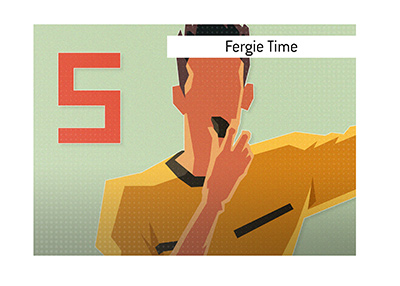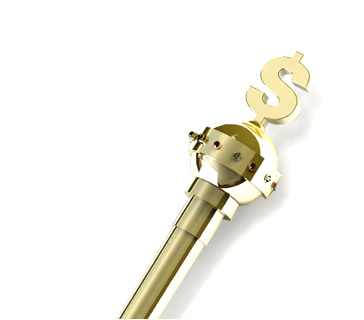Definition of Fergie Time
Click Here To Bet on Sports!
At the end of each half of a football match comes a period of "stoppage time". This is time added onto the half to make up for fouls, injuries or other delays to the always running clock. The amount is decided by the referees (specifically the fourth official on the sideline and the head referee on the field) and then presented by an electronic board. There are guidelines for how this is added, but it's still left to the discretion of the referees.
 This has led to some interesting comments, as goals can come in those last moments to change the results of games. Sir Alex Ferguson was renowned for his negative comments and conflicts with various referees, often accusing them of bias against his Manchester United. This, in turn, would seem to have referees adding on more stoppage time than would normally exist in games when Manchester United were losing or drawing.
This has led to some interesting comments, as goals can come in those last moments to change the results of games. Sir Alex Ferguson was renowned for his negative comments and conflicts with various referees, often accusing them of bias against his Manchester United. This, in turn, would seem to have referees adding on more stoppage time than would normally exist in games when Manchester United were losing or drawing.
While this might seem like conspiracy pedaling, there is some statistical data to backup "Fergie Time". A study from The Times found that there was a correlation where Manchester United would get more stoppage time, though there were also other factors that led to this increase when United were behind. When Opta Sports examined Premier League games between 2010-2012, they found that United had 79 more seconds of extra time when they were losing.
Clearly Fergie Time existed. Though Manchester United are not the only team to benefit from added stoppage time, as other top clubs tend to get it when playing at home. However, it will always be linked to the Scottish manager who led Manchester United for over two decades.
Click Here To Bet on Sports!

